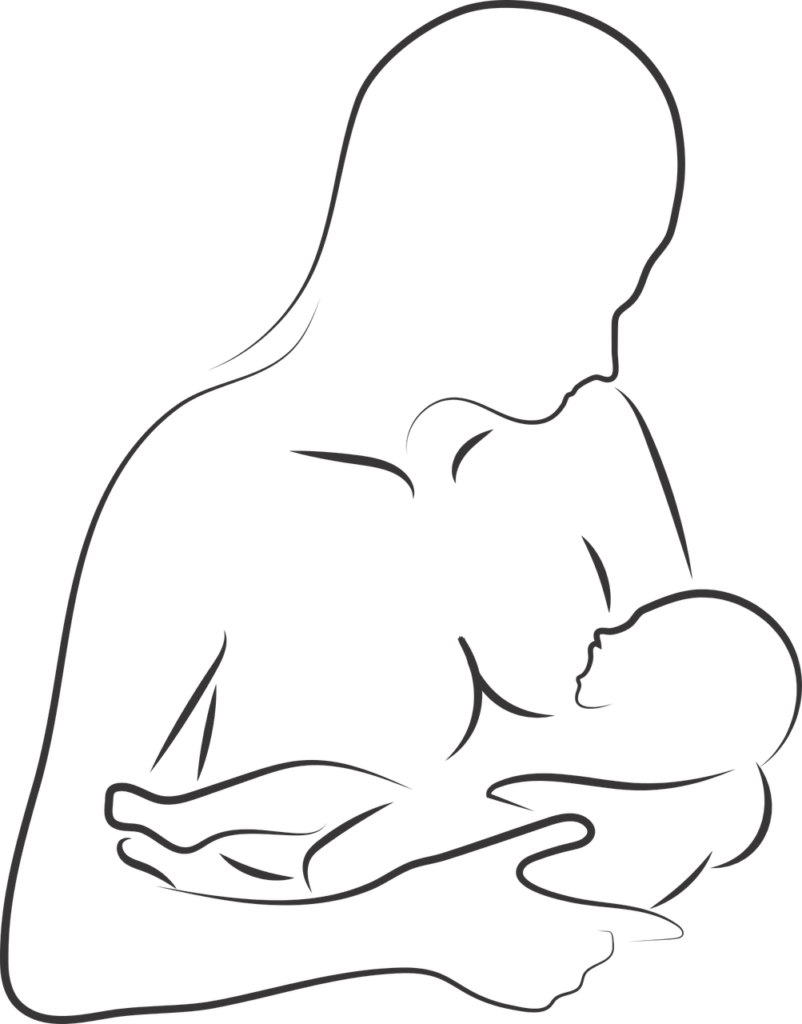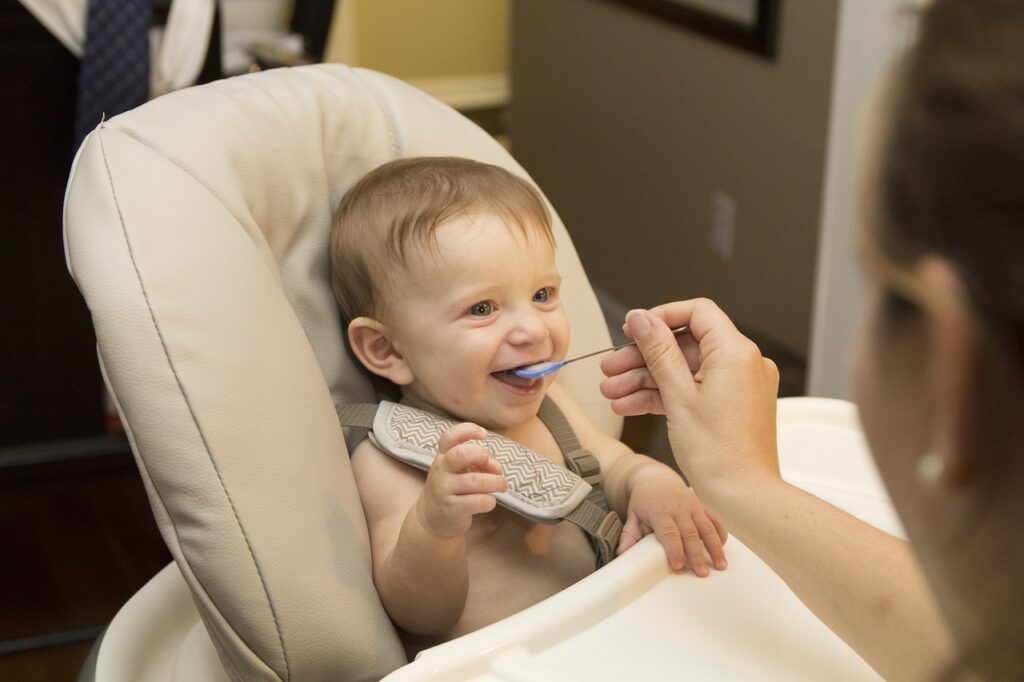
Becoming a parent is one of life’s most rewarding yet challenging experiences. As a new parent, ensuring the health, safety, and well-being of your baby can feel overwhelming, especially when there’s so much advice out there. This guide aims to provide you with a solid foundation for infant care, covering everything from feeding and sleeping to hygiene and emotional development.

1. Feeding Your Infant (Comprehensive Guide)
Breastfeeding vs. Formula Feeding

Both breastfeeding and formula feeding can provide your baby with essential nutrients for growth and development. The choice largely depends on personal preferences, health conditions, and lifestyle. (Comprehensive Guide)
- Breastfeeding is recommended by most health organizations, including the World Health Organization (WHO), as it contains natural antibodies and nutrients tailored to your baby’s needs. It also promotes bonding.
- Formula feeding is a healthy alternative if breastfeeding is not an option or preferred. Modern formulas are designed to closely mimic breast milk and meet nutritional standards. (Comprehensive Guide)
Regardless of the method you choose, ensure your baby is fed frequently—newborns typically eat every 2-3 hours.

Feeding Cues (Comprehensive Guide)

Recognizing your baby’s hunger cues is essential. Common signs include:
- Rooting (turning their head towards the breast or bottle)
- Sucking on hands or fingers
- Increased alertness and restlessness Crying is a late hunger cue, so try to respond before your baby becomes too upset. (Comprehensive Guide)

2. Sleep Patterns and Safe Sleep (Comprehensive Guide)


Sleep Needs
Newborns need 14-17 hours of sleep per day, typically broken into smaller chunks of 2-4 hours. As they grow, the sleep schedule will gradually consolidate into longer stretches.
Safe Sleep Practices (Comprehensive Guide)
To reduce the risk of Sudden Infant Death Syndrome (SIDS), always place your baby on their back to sleep. Additional safety measures include:
- Using a firm mattress and fitted sheet (Comprehensive Guide)
- Keeping soft toys, pillows, and blankets out of the crib
- Avoiding overheating by dressing your baby in light layers
- Sharing the room (but not the bed) for at least the first six months
3. Diapering and Hygiene
Diapering Essentials
Expect to change diapers frequently—newborns can go through 8-12 diapers a day. Whether you use cloth or disposable diapers, proper hygiene is essential to prevent diaper rash and infections. Here’s how:
- Change diapers often to keep the area clean and dry.
- Wipe gently from front to back to prevent bacteria from spreading.
- Use diaper cream if you notice any redness or irritation.(Comprehensive Guide)
Bathing Your Baby
Newborns do not need daily baths. A sponge bath 2-3 times a week is sufficient until the umbilical cord stump falls off. Ensure you use warm water (around 37°C or 98°F) and gentle, unscented baby soap. Always support your baby’s head and neck during the bath, and never leave them unattended.
4. Emotional Bonding and Development (Comprehensive Guide)
Infant care goes beyond physical needs—emotional development is equally crucial. Babies need love, warmth, and a sense of security. You can foster emotional growth through:
- Skin-to-skin contact: This promotes bonding and helps regulate your baby’s body temperature and heart rate.
- Talking and singing: Your baby will recognize your voice and feel comforted. Language development starts early, so speaking to your baby lays the groundwork for communication.
- Responding to cries: Newborns cry as their primary means of communication. By responding to their needs—whether it’s hunger, discomfort, or the need for comfort—you are helping them develop trust and security.
5. Health and Wellness
Regular Checkups (Comprehensive Guide)
Ensure your baby attends regular checkups with a pediatrician. These visits monitor growth, development, and general health, including vaccinations to protect against serious diseases.
Signs of Illness
It’s important to recognize when your baby may not be feeling well. Common signs include:
- Fever (a rectal temperature of 100.4°F or higher in infants under 3 months is a cause for concern)
- Lethargy or unusual fussiness
- Poor feeding or reduced diaper output
- Difficulty breathing
If you notice any of these symptoms, contact your pediatrician immediately.
6. Caring for Yourself (Infant Care)
Infant care can be physically and emotionally draining. It’s important to take care of yourself as well. Don’t hesitate to ask for help from family, friends, or healthcare providers. Rest when you can, eat well, and try to find moments for self-care. A healthy, well-rested parent is better able to care for their child.
What is the best way to establish a sleep routine for my baby?
Establishing a sleep routine for your infant involves creating consistent bedtime habits, such as feeding, bathing, or reading. It’s essential to keep the environment calm and quiet, with dim lighting to help your baby distinguish between day and night. While it can take time, patience is key. Newborns may not sleep through the night, but regularity helps over time.
How often should I feed my newborn, and how do I know if they are getting enough?
Newborns typically need to be fed every 2-3 hours, whether breastfed or bottle-fed. Signs that your baby is getting enough milk include weight gain, regular wet diapers (6-8 a day), and being content after feedings. Always consult your pediatrician if you are unsure about your baby’s feeding needs.
When can I start tummy time, and why is it important?
Tummy time can begin as early as your baby’s first day home from the hospital. It’s essential for strengthening their neck, shoulder muscles, and motor skills. Start with short sessions (3-5 minutes) two to three times a day, gradually increasing the duration as your baby grows stronger.
How do I properly care for my baby’s umbilical cord stump?
Keep the umbilical cord stump clean and dry until it falls off, usually within 1 to 3 weeks after birth. Avoid covering it with a diaper, and gently clean the area with water if it gets dirty. Avoid submerging your baby in water until the stump has completely healed.
What should I do if my baby develops diaper rash?
Diaper rash is common and can usually be treated at home. Ensure you are changing diapers frequently and applying a diaper rash cream or ointment to soothe the skin. Let your baby go without a diaper for short periods to allow the skin to breathe. If the rash persists or worsens, consult your pediatrician for advice.
Conclusion
Infant care is a learning process that requires patience, love, and attentiveness. While it can be overwhelming at first, trust your instincts, seek support when needed, and remember that every baby is different. With time, you’ll develop a rhythm that works for both you and your baby, laying the foundation for a healthy, happy future.



I really appreciate this post. I?¦ve been looking all over for this! Thank goodness I found it on Bing. You have made my day! Thank you again